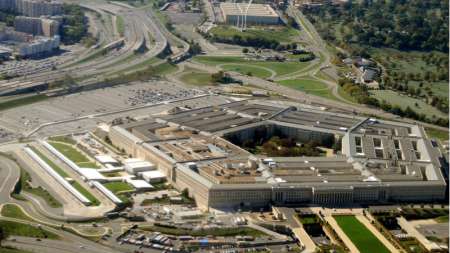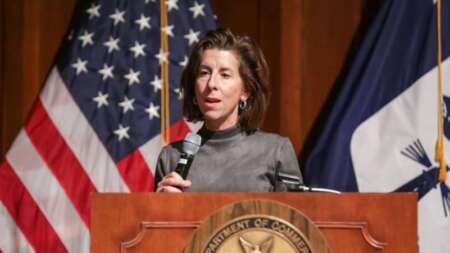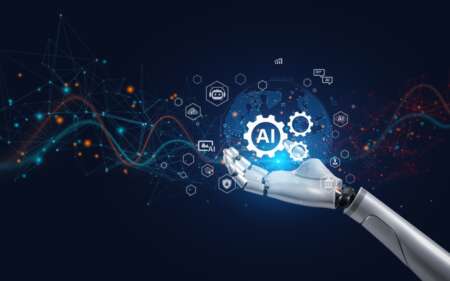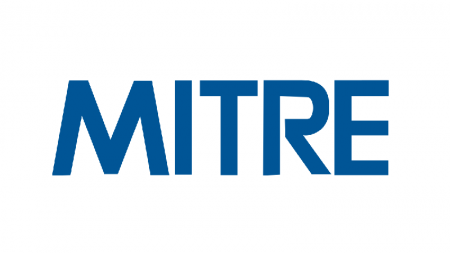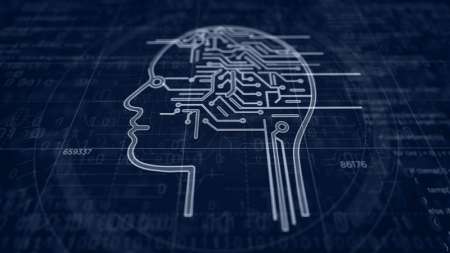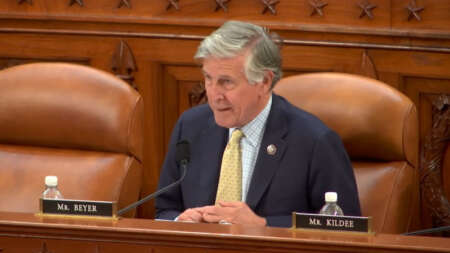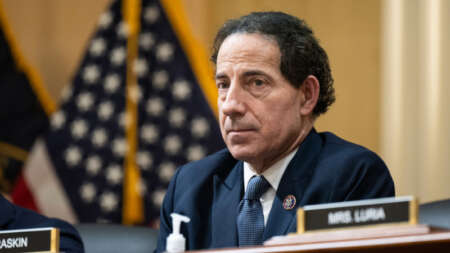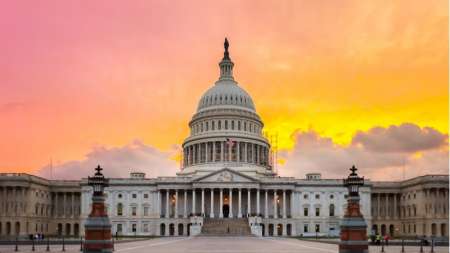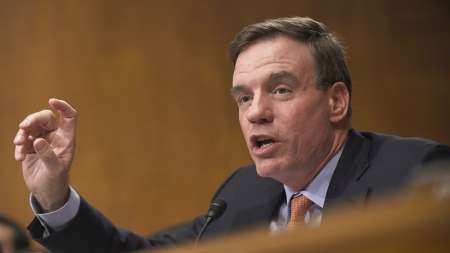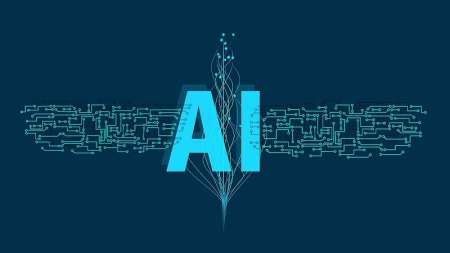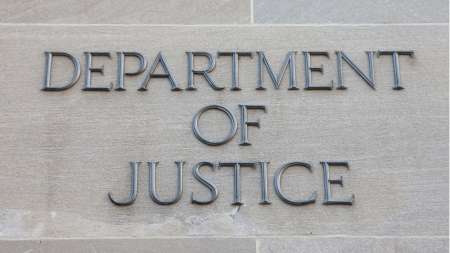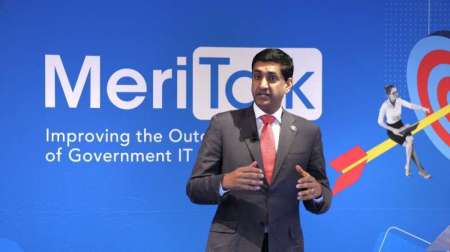The Department of Homeland Security (DHS) has tapped Michael Boyce to lead its AI Corps, which the agency established back in February. […]
Federal officials on Thursday shared that the recent explosion of interest in AI technologies is also fueling better data management across the Federal government, and emphasized that you can’t have one without the other. […]
The Defense Intelligence Agency (DIA) has been slowly identifying areas within its enterprise that would benefit from automation and other artificial intelligence-enabled improvements, but bringing those ideas to fruition will be a challenge, the agency’s finance chief said this week. […]
As artificial intelligence technologies continue to rapidly evolve, Federal agencies are looking to upskill their AI workforce to keep pace with emerging cybersecurity threats. […]
Officials from the Department of Energy (DoE) and cloud security provider Zscaler said that having a secure zero trust architecture (ZTA) in place can help agencies be prepared for cyber threats related to generative AI. […]
The United States and the United Kingdom signed a landmark agreement on Monday to collaborate on testing artificial intelligence models, becoming the first two countries to formally work together on AI safety. […]
2024 was the first year that artificial intelligence (AI) appeared on the National Association of State Chief Information Officers’ (NASCIO) list of top priorities for state CIOs. Also for the first time ever, digital government services and cybersecurity tied for the top priority spot. […]
Sen. Mark Warner, D-Va., and Reps. Donald Beyer, D-Va., and Gerry Connolly, D-Va., joined MITRE this week at the grand opening of the company’s AI Assurance and Discovery Lab. […]
A new report from the Treasury Department on how the financial services sector is approaching managing AI-driven cybersecurity risks reveals challenges familiar to many sectors – think workforce, data quality, and funding. But one that stands out from the rest gets down to the very basic level of understanding those risks: reaching broad agreement on what artificial intelligence means, and adopting common terms that will allow for greater understanding of the technology. […]
A bipartisan group of House members has introduced legislation that aims to protect Americans from AI generated content – such as deepfakes – during the 2024 election cycle by setting standards, like watermarking, for identifying AI content. […]
The Department of Homeland Security (DHS) is expanding its use and testing of artificial intelligence (AI) technologies through a new roadmap and trio of pilot projects, the agency said today. […]
With the House AI Task Force set to hold its first meeting today on Capitol Hill, Rep. Don Beyer, D-Va. – one of the 24 members on the task force – laid out his top three goals for pursuing legislation that impacts the technology. […]
MeriTalk recently sat down with Tifani O’Brien, vice president and AI/machine learning accelerator lead at Leidos, to discuss how agencies can overcome barriers and build trust in AI to reap the benefits the technology can deliver. […]
As the Department of the Navy looks to enable better and faster decisions for warfighters, Chief Information Officer (CIO) Jane Rathbun said the service branch is infusing AI at the edge to improve decision-making. […]
Reliable weather forecasts can save lives, and the National Oceanic and Atmospheric Administration (NOAA) is looking to cutting-edge technologies such as AI and cloud computing to improve its forecasting system and models. […]
House Oversight and Accountability Committee Chairman James Comer, R-Ky., and Ranking Member Jamie Raskin, D-Md., introduced legislation today which would focus government resources on increasing transparency, oversight, and responsible use of Federal AI systems. […]
Rep. Jay Obernolte, R-Calif., chairman of the newly formed House AI Task Force, said Tuesday that his goal is to create a regulatory framework for AI “that then we can hang various pieces of legislation on.” […]
The intelligence community (IC) has a data challenge — specifically overflowing streams of data — and artificial intelligence (AI) technologies could be a solution to meeting that challenge. But to leverage that solution the IC needs to format data so that it’s receptive in AI-driven solutions, a top intelligence official said today. […]
The Energy Department’s (DoE) new Office of Critical and Emerging Technologies is seeking information on the potential for AI technology to improve electric grid infrastructure and provide clean energy to all Americans. […]
The Chair of the Senate Select Committee on Intelligence expressed concerns today that the United States is not prepared to fight foreign interference in the 2024 presidential election cycle, particularly when it comes to AI misuse. […]
The National Institute of Standards and Technology (NIST) has established a two-year partnership with the nonprofit Engineering Biology Research Consortium (EBRC) to secure biotechnologies from risks associated by artificial intelligence (AI) systems. […]
The Commerce Department’s National Telecommunications and Information Administration (NTIA) component said today it will soon be asking for public comment on the “risks, benefits, and potential policy” of open-weight artificial intelligence models. […]
The House of Representatives officially launched its bipartisan Task Force on Artificial Intelligence (AI) today to help move along legislative proposals to regulate the evolving technology. […]
The Office of Personnel Management (OPM) is seeking feedback from Federal AI experts as part of a new governmentwide survey that will result in a finalized AI Competency Model. […]
Lisa Monaco, deputy attorney general at the Justice Department (DoJ), announced last week the launch of Justice AI – a new initiative that aims to understand and prepare for how the emerging technology will affect the criminal justice system. […]
Rep. Ro Khanna, D-Calif., surfaced a range of fresh opinions on the future of AI policy from economic and academic experts this week as he is working on possible legislation that could provide tax credits to companies developing AI tech as an inducement to give their employees more of a stake in the success of those firms. […]
The Department of Veterans Affairs needs to take a measured approach to adopting and scaling artificial intelligence (AI) technologies to improve health care of veterans, and inform veterans about how their health information is being used in connection with AI tech, lawmakers said during a Feb. 15 House Committee on Veterans’ Affairs subcommittee oversight hearing. […]
Sen. Gary Peters, D-Mich., who chairs the Senate Homeland Security and Governmental Affairs Committee, has introduced bipartisan legislation that aims to strengthen America’s workforce pipeline in artificial intelligence (AI), cybersecurity, and other critical technologies. […]
The U.S. Patent and Trademark Office (USPTO) has a new policy out that embraces the use of AI in innovation, while also stressing the importance that a human contributor is named on a patent. […]
Rep. Yvette Clarke, D-N.Y., issued a call today to her fellow lawmakers to approve artificial intelligence (AI) regulatory legislation that will ensure AI users are protected from harms, especially those in marginalized communities. […]



